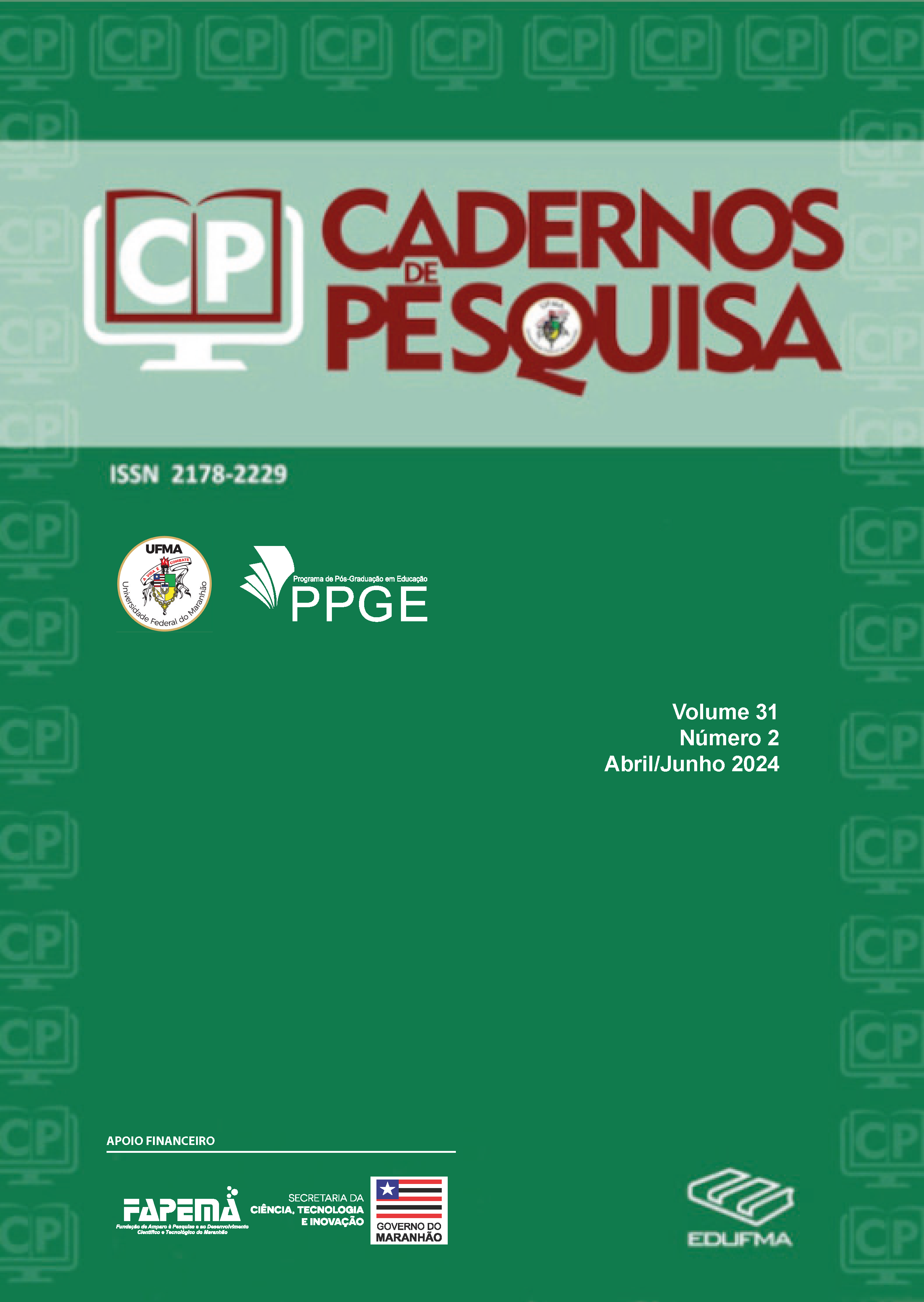Teaching in the era of technical reproduction:
regression of thought, barbarism and the possibilities of experience in human formation
Keywords:
Theoretical criticism, Teaching, Experience, Human formation, Modernity, Walter BenjaminAbstract
This text addresses the relationship between teaching and the increasingly accentuated difficulties in conceptualizing what human formation is, in a world marked by the broad and globalizing development of economics, technique and technologies, which, far from providing, on the same scale, social development, pronounce the distances between possessors and dispossessed. Furthermore, they indicate a rupture that has been felt by critical theorists of society of different epistemological hues, since the 1950s, between a humanistic culture based on the common good and another, more instrumental and related to the masses, oriented towards an existence with a hedonistic, immediatist bias and voluntarily submitted to the will of the market, Capital, consumption and entertainment itself. The regression and decline of thought and, in particular, of thought that criticizes what is not true about it, as well as the barbarism that is characteristic of these moments of cultural life, are discussed based on authors such as Walter Benjamin, Hannah Arendt and Michel Foucault, who dared to address what is conventionally considered the ultimate truth in history. It is argued that human formation and humanity itself lack another formative model, precisely the one that takes the experience of criticism as the only one capable of overcoming the serious ethical-political and environmental crisis that the planet faces, perhaps the first that will, in fact, lead humanity to extinction because of itself and its action on the world.
Downloads
References
ADORNO, Theodor Wiesengrund; HORKHEIMER, Max. Dialética do Esclarecimento. Fragmentos filosóficos. Tradução de Guido Antonio de Almeida. Rio de Janeiro: Jorge Zahar, 1985.
ADORNO, Theodor Wiesengrund. Educação e Emancipação. Tradução de Wolfgang Leo Maar. São Paulo: Paz e Terra, 2000.
ARENDT, Hannah. A Condição Humana. Tradução de Roberto Raposo. 10. ed. Rio de Janeiro: Forense Universitária, 2005.
ARENDT, Hannah. Entre o passado e o futuro. Tradução de Mauro W. Barbosa de Almeida. São Paulo: Perspectiva, 2016a.
ARENDT, Hannah. Crise na cultura. In: ARENDT, H. Entre o Passado e o Futuro. Tradução de Mauro W. Barbosa de Almeida. São Paulo: Perspectiva, 2016b.
BENJAMIN, Walter. In: LAVELLE, Patrícia (org.). A arte de contar histórias. Tradução de Georg Otte; Marcelo Backes; Patrícia Lavelle. São Paulo: Hedra, 2018.
BENJAMIN, Walter. Documentos de Cultura, Documentos de Barbárie. Escritos escolhidos. Seleção e apresentação de Willi Bole. Tradução de Celeste H. M. Ribeiro de Souza et al. São Paulo: Cultrix / EDUSP, 1986.
BOURDIEU, Pierre (coord.). A Miséria do Mundo. Petrópolis, RJ: Vozes, 1997.
COSTA, Sylvio de Sousa Gadelha. Governamentalidade neoliberal, teoria do capital humano e empreendedorismo. Educação e Realidade. Porto Alegre, v. 34, n. 2, p. 171-186, 2009. Disponível em: https://seer.ufrgs.br/index.php/educacaoerealidade/article/view/8299/5537. Acesso em: 24 jan. 2024.
DREYFUS, Hubert; RABINOW, Paul. Michel Foucault, uma trajetória filosófica (para além do Estruturalismo e da Hermenêutica). Rio de Janeiro: Forense Universitária, 1995. p. 253-278.
FOUCAULT, Michel. O que é a crítica? (Crítica e Aufklärung). Cadernos da F. F. C. (Faculdade de Filosofia e Ciências – UNESP), Marília, v. 9, n.1, 2000. Disponível em: https://michel-foucault.weebly.com/uploads/1/3/2/1/13213792/critica.pdf. Acesso em: 24 jan. 2024.
FOUCAULT, Michel. Nascimento da biopolítica. Curso dado no Collège de France (1978-1979). São Paulo: Martins Fontes, 2008.
GAGNEBIN, Jeanne Marie. História e narração em Walter Benjamin. Campinas, SP: Perspectivas, 1994.
JAEGER, Werner. Paidéia: a formação do homem grego. Tradução Artur M. Parreira. São Paulo: Marins Fontes, 1994.
JAMES, William. Pragmatismo e outros textos. São Paulo: Abril Cultural, 1979 (Coleção Os pensadores).
KANT, Immanuel. Resposta à pergunta: Que é o “Esclarecimento” (“Aufklärung”). In: KANT, Immanuel. Textos Seletos. Edição bilíngue. Tradução de Floriano de Sousa Fernandes. Petrópolis, RJ: Vozes, 1974.
KANT, Immanuel. Sobre a Pedagogia. Tradução de Francisco Fontanella. 5. ed. Piracicaba: Editora UNIMED, 1999.
LA BOÉTIE, Étienne de. Discurso da Servidão Voluntária. Tradução de Laymert Garcia dos Santos. Comentários de Claude Lefort; Pierre Clastres e Marilena Chauí. São Paulo: Editora Brasiliense, 1982.
LAPOUJADE, David. William James, a construção da experiência. Tradução de Hortência Santos Lencastre. São Paulo: n-1 edições, 2017.
READ, Herbert. A redenção do Robô: meu encontro com a educação através da Arte. Tradução de Fernando Nuno. São Paulo: Summus, 1986.
RODRIGUES, Neidson. Educação: da Formação Humana à Construção do Sujeito Ético. Educação & Sociedade, v. 22, n. 76, out. 2001. Disponível em: https://www.scielo.br/j/es/a/MpfHNQQRP5c4LBvN4pgPpwJ/?format=pdf&lang=pt. Acesso em: 23 jan. 2024.
ROUANET, Sérgio Paulo. O olhar iluminista. In: NOVAES, A. O olhar. São Paulo: Schwarcz, 1988.
SANDER, Jardel. Corpo-dispositivo: cultura, subjetividade e criação artística. ArtCultura. Uberlândia, v. 13, n. 23, p. 129-142, jul./dez. 2011.
Downloads
Published
How to Cite
Issue
Section
License

This work is licensed under a Creative Commons Attribution 4.0 International License.
A Cadernos de Pesquisa está licenciada com uma Licença Creative Commons Atribuição 4.0 Internacional.














